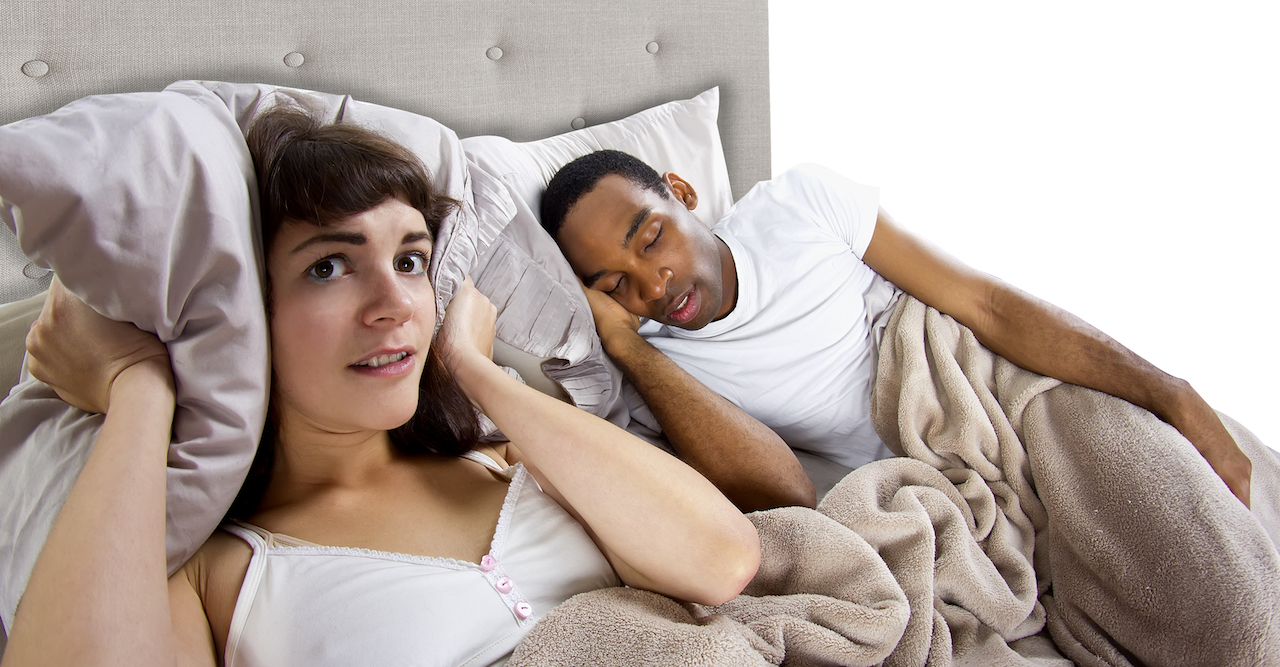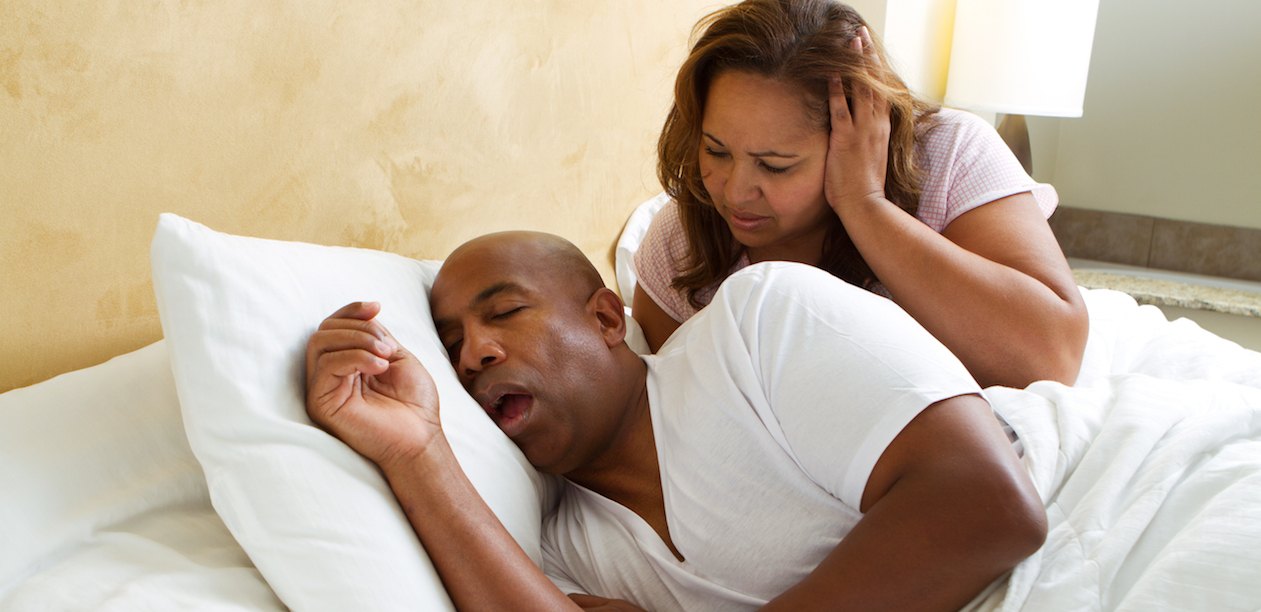It’s normal to have a bad night or two here and there, but if you’re finding yourself feeling constantly tired and blurry-eyed, you could be suffering from a sleep disorder known as sleep apnoea. Besides leaving you feeling flat and fatigued, sleep apnoea can impact your health in several other ways.
What is sleep apnoea?
Sleep apnoea is a relatively common disorder in which you have one or more pauses in breathing while you sleep. These pauses can last anything from a few seconds to a few minutes, and can happen as many as 30 times an hour. As your body realises its running out of oxygen, you’ll gasp with a loud snort or choking sound, and start breathing normally again.
This gasping for air disturbs your deep sleep, and if it happens several times a night, it’s not surprise you feel exhausted when the alarm goes off!
How does it happen?
There are three types of sleep apnoea, and each has a different trigger:
- Obstructive sleep apnoea, which is the most common, is caused by the muscles of your throat relaxing, which narrows or closes your airway.
- Central sleep apnoea occurs when your brain doesn’t send proper signals to the muscles that control breathing. This means that you make no effort to breathe for a short period of time.
- Complex sleep apnoea syndrome is a combination of the two.
Sleep apnoea and your heart
When you stop breathing, a few interesting things happen in your body:
- Your oxygen levels drop, signalling your brain to activate your “fight or flight” response.
- Adrenaline is released and your breathing returns to normal.
- Since your breathing is interrupted all through the night, your adrenaline builds up.
Over time, the stress hormones put strain on your heart, increase inflammation and interrupt the way your body regulates blood sugar. So much so, that besides heart attack, sleep apnoea is also associated with high blood pressure, stroke, heart arrhythmias, heart failure and diabetes!
Are you at risk?
You’re at higher risk of sleep apnoea if:
- you are male, older than 65 and have a family history of the condition
- you have inherited a narrowed airway, or have enlarged tonsils or adenoids
- you are overweight. Those who are obese have four times the risk of sleep apnoea that people who are a normal weight
- you use alcohol or sedatives close to bedtime – both relax the muscles in your throat
- you smoke – this increases your risk up to 3 times! Smoking increases the amount of inflammation and fluid retention in the upper airway.
Do you have sleep apnoea?
Most people who suffer from the condition aren’t aware they have it. It needs to be diagnosed with a test called “Nocturnal Polysomnogram”, which measures various physiological functions while you sleep.
Most people who have sleep apnoea also snore, so it’s probably your sleep deprived partner who is the most likely to point it out to you! Either way, if you feel that your fatigue levels are extreme, don’t ignore it, it’s important to see a doctor.
Managing sleep apnoea can be life-changing
Once you have been diagnosed with sleep apnoea, your doctor can give you a tailored treatment plan:
- For milder cases, certain lifestyle changes such as losing weight or quitting smoking can do the trick.
- For moderate to severe cases, Continuous Positive Airway Pressure (CPAP) is the most effective therapy. This is a machine that delivers air pressure through a mask placed over your nose while you sleep.
By managing sleep apnoea, you not only reduce your risk of heart disease, but you’ll be able to get a good night’s sleep, often for the first time in years. Trust us, this can change every aspect of your life: including your mental health, cognitive abilities, well-being and overall happiness.
References
https://www.nhlbi.nih.gov/health/health-topics/topics/sleepapnea/
http://www.mayoclinic.org/diseases-conditions/sleep-apnea/basics/definition/con-20020286
http://healthysleep.med.harvard.edu/sleep-apnea/living-with-osa/health-consequences



